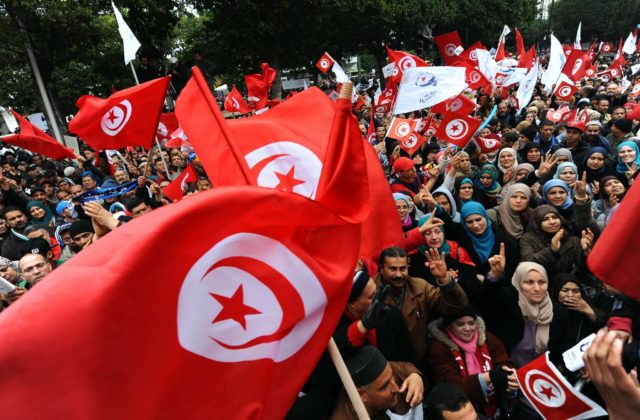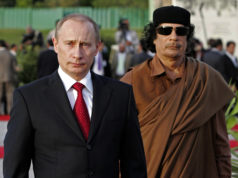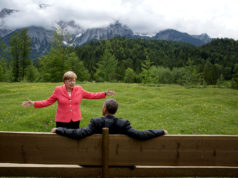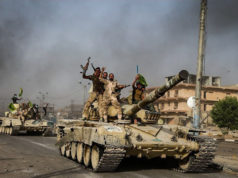January 14 marks the sixth anniversary of the ouster of longtime Tunisian autocrat Zine al-Abidine Ben Ali, part of an uprising that sparked a wave of so-called “Arab Spring” revolts across the region. Of the countries experiencing upheaval since 2011, Tunisia remains the only one continuing down a path, however bumpy, to democracy. The struggling state on the Mediterranean faces considerable economic, political, and security obstacles to full democratic consolidation. But six years later, the Tunisian experiment in democracy has made important strides and remains worthy of American investment.
Reasons to Celebrate
Tunisia’s transition from authoritarianism has been remarkably peaceful, especially when compared to cases like Libya, Egypt, Syria, and Yemen. The low level of civil strife partly reflects a streak of pragmatism that has eluded transitions elsewhere. Consider the hotly contested spring 2011 decision to permit members of the former ruling party to participate in politics. Banning former regime figures likely would have signaled to the revolutionaries who first took to the streets in December 2010 that a deeper regime change was in the offing, but it also might have excluded the nearly one million citizens (out of a population of 11 million) registered as members of the former ruling party from participating in the new political system. Similar punitive efforts to exclude elements of the pre-Spring regimes – however understandable – yielded disastrous results in Libya and Egypt, so Tunisia probably spared itself significant social unrest by bucking the trend.
Pragmatism has also characterized the political behavior of the dominant post-revolutionary players. Witness the decision of the Islamist Ennahda (“Renaissance”) Party and two secular parties to form a governing coalition after the country’s first free and fair parliamentary elections in October 2011. Or consider Ennahda’s ultimate acquiescence to those who opposed its proposals to insert Islamic law into the constitution and criminalize blasphemy. Ideology similarly took a back seat when President Beji Caid Essebsi’s fiercely anti-Islamist party Nidaa Tounes (“Call of Tunisia”) entered a coalition with Ennahda following the 2014 parliamentary elections.
Such decisions have helped keep the transition afloat, though not without a cost. On the secularists’ side, the choice to govern alongside Ennahda exacerbated tensions within Nidaa Tounes that partly reflected disagreement over whether to work with the Islamists at all. Nidaa’s infighting led to a series of party resignations throughout 2015 and to a formal breakup of the party a year later. The implosion of Nidaa reduced its seat tally in the parliament and made Ennahda, with 69 seats, the largest party in the legislature once again. The ongoing dysfunction within Nidaa has also been partly to blame for the slow pace of reforms in the legislature and the ensuing decision to replace the government of Prime Minister Habib Essid with a national unity government in 2016. The latter may yet prove better able to take some bold steps on the economic front, but it will have come about at the expense of considerable political instability.
For its part, Ennahda’s concessions during the constitutional drafting process alienated some of the party’s base, as did the decision to enter a coalition with anti-Islamists, some of whom were politically active under the former regime. For two years, Ennahda repeatedly postponed a formal party congress as internal debates continued over the nature of its Islamist identity and the relationship between its political and religious activities. Then, in 2016 the party announced that it would be disavowing the term “political Islam” in favor of “Muslim democracy” and separating its political and religious activities. It remains to be seen whether such pronouncements reflect a deeper ideological shift for the Islamist movement or merely a re-branding, but either way, the fact that Ennahda was moved to issue such dramatic statements suggests the party was looking for ways to maintain and expand a base of support that had been damaged by decisions taken since the uprising.
In short, the main political actors have paid a price for recognizing that a delicate transition requires a minimal degree of consensus. In the moments when consensus proved elusive, Tunisia’s vibrant civil society organizations remained a key source of pressure to ensure that the political class made good on its democratic promises. In October 2015, the Nobel Committee awarded the Peace Prize to four leading Tunisian civil society organizations – the League of Human Rights, the General Labor Union, the Confederation of Industry, Trade and Handicrafts, and the Order of Lawyers (akin to a bar association) – in recognition of their successful mediation of ongoing political disputes that had threatened to derail the transition two years prior. The role of these organizations also spoke to the country’s undeniable gains in freedom since the uprising. These gains have not extended to all groups, as ongoing restrictions on gay rights organizations make clear. But by and large, Tunisia’s flourishing civil society has been able to tackle social, economic, and political issues in unprecedented ways, contributing to a sense that there can be no turning back on matters like free speech, and no tolerance for any return to the law enforcement practices of the pre-2011 police state.
Causes for Concern
Still, the advances in political and civil liberties have occurred against a backdrop of continuing economic distress and persistent security threats. The bleakest aspect of the transition has been economic. For too many Tunisians, especially those living in the chronically neglected interior regions, the uprising brought little economic improvement and in some cases made conditions worse. Throughout the governorates where the protests originated, unemployment hovers around 25 percent and has reached 40 percent among young adults. In early 2016 riots broke out across the country after an unemployed man was electrocuted while standing atop a power pole in protest against persistent joblessness and unfair hiring practices. Smuggling across the Libyan and Algerian borders has increased, in part because the state remains reluctant to clamp down for fear of depriving citizens of such income – even though these smuggling routes are used to transport not only goods like oil and food, but also weapons and terrorists. Tunisia has benefited from successive IMF loans, but it will likely have difficulty honoring the most recent agreement, valued at $2.9 billion.
The country also faces ongoing security threats, including spillover from the Libyan civil war, terrorist cells routinely uncovered at home, and the prospect of an estimated 6,000 radicalized Tunisians returning from Syria, Iraq, and Libya – the largest single contingent of foreign fighters in those conflicts. The years following the uprising saw a series of jihadist attacks on Tunisian soil, including a 2012 attack against the U.S. embassy, two political assassinations in 2013, and attacks targeting tourists at the Bardo National Museum and a beach in Sousse in 2015 that all but decimated the country’s tourism industry. A November 2015 suicide bombing killed 12 members of the Presidential Guard in downtown Tunis – an operation for which the so-called Islamic State (IS) claimed responsibility – and led President Essebsi to re-impose a three-month state of emergency. Then in March 2016, an estimated 50 militants with ties to IS in Libya attacked the town of Ben Guerdane near the Libyan border. The ensuing two-day battle left 46 militants, seven civilians, and 12 members of the Tunisian security forces dead. Security sector reform takes time in any country, and it is especially arduous in transitioning states. Tunisia’s transition is unfolding in a very rough neighborhood, so the slow pace of reform creates additional pressures.
U.S. Policy Implications
In his final State of the Union address on January 12, 2016 President Obama reaffirmed America’s support for its allies, noting that “when it comes to every important international issue, people of the world do not look to Beijing or Moscow to lead – they call us.” For Tunisia, U.S. support and leadership will be crucial if it is to build on the gains of the past six years and emerge from the next six on stronger democratic footing. Between 2012 and 2015 U.S. bilateral assistance to Tunisia steadily declined, but that trend was reversed after the Bardo and Sousse attacks of 2015 evidently convinced members of Congress that the birthplace of the Arab Spring remained precarious enough to warrant continued investment. Total U.S. assistance to the struggling state since 2011 has reached around $750 million, in addition to three successive loan guarantees permitting Tunisia to access global capital markets.
In addition to bilateral aid, however, more attention will need to be paid to the regional sources of instability threatening Tunisia’s democratic experiment. This will mean exercising U.S. leadership in containing and ultimately resolving the Libyan conflict. It will mean closely monitoring developments in Algeria, where a looming succession crisis, deteriorating economy, and persistent social unrest could throw Africa’s largest country into chaos, with clear security implications for Tunisia. And it will mean greater support for and coordination with European allies as they struggle to manage a growing refugee crisis and rebuild their economies, on which Tunisia greatly relies for its own prosperity.
Sarah Feuer, Ph.D. is a Soref Fellow at The Washington Institute for Near East Policy. Reprinted with permission.






